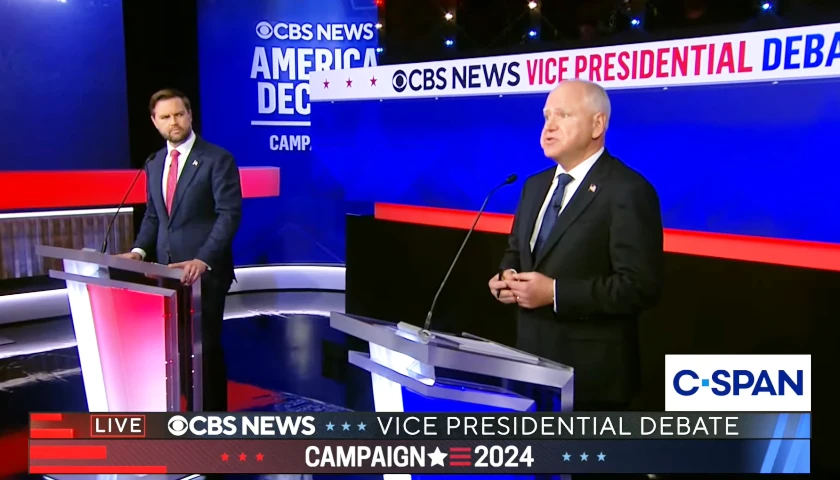EJ Haust, a digital marketing expert and former journalist who lived in Minnesota for 12 years before relocating to Tennessee, and Michael Patrick Leahy, CEO and editor-in-chief of The Tennessee Star, said they believe Minnesota Governor Tim Walz may have “mangled” his answer during Tuesday’s night’s vice presidential debate when he was pressed on his trip to Hong Kong, China in 1989 to cover up his deeper connections to the Chinese Communist Party (CCP).
During Tuesday night’s debate against U.S. Senator JD Vance (R-OH), CBS moderator Margaret Brennan pressed Walz on his false claim that he was in China in the spring of 1989 as the Tiananmen Square protests took place.
Walz admitted that he “misspoke” and admitted that he didn’t arrive in China until the summer of 1989, saying, “I was in Hong Kong and China during the democracy protests, went in, and from that I learned a lot of what needed to be in governance.”
However, Walz had to be pressed twice on the question before making the admittance.
On Friday’s edition of The Michael Patrick Leahy Show, Leahy explained the more in-depth timeline of Walz’s visit to China in 1989 and why the governor may have wanted to keep it under wraps.
During the 1989-1990 school year, Walz taught English and U.S. history at a high school in China after graduating from Harvard University’s WorldTeach program – months after the Tiananmen Square protests, which Leahy described as a “massacre of the totalitarians against the democracy movement that ended the democracy movement.”
Leahy said Walz doesn’t want the public to know that he, in 1989, following the protests, “knew and accepted a job and showed up two months after the authoritarian communists destroyed the democracy movement. “
“Nonetheless, he showed up and spent a year in China and had half of his salary paid for by the Chinese Communist Party,” Leahy explained.
“He wanted to obfuscate the fact that he was not there to observe and see what he could learn from the democracy movement in China in 1989, which was ended by the people that paid him,” Leahy added.
Leahy pointed out that the seemingly ordinary decision Walz should have made in 1989 would have been to cancel his plans to teach in China following the protests; however, he added that Walz, not having made that decision, appears to be “ideologically committed to communism.”
“Who would do that? Somebody who is ideologically committed to communism,” Leahy said.
Haust agreed, commenting, “Who would go there two months after? Aren’t you canceling that and looking for another job?”
Regarding Walz’s comment during the debate that he “learned a lot” about governance from his China trip, Haust said she believes Walz meant that he “learned how to get around democracy” instead.
“What exactly did you learn? It sounds like you don’t like [democracy]. It sounds like you learned how to get around democracy,” Haust added.
Watch the full interview:
– – –
Kaitlin Housler is a reporter at The Tennessee Star and The Star News Network. Follow Kaitlin on X / Twitter.




